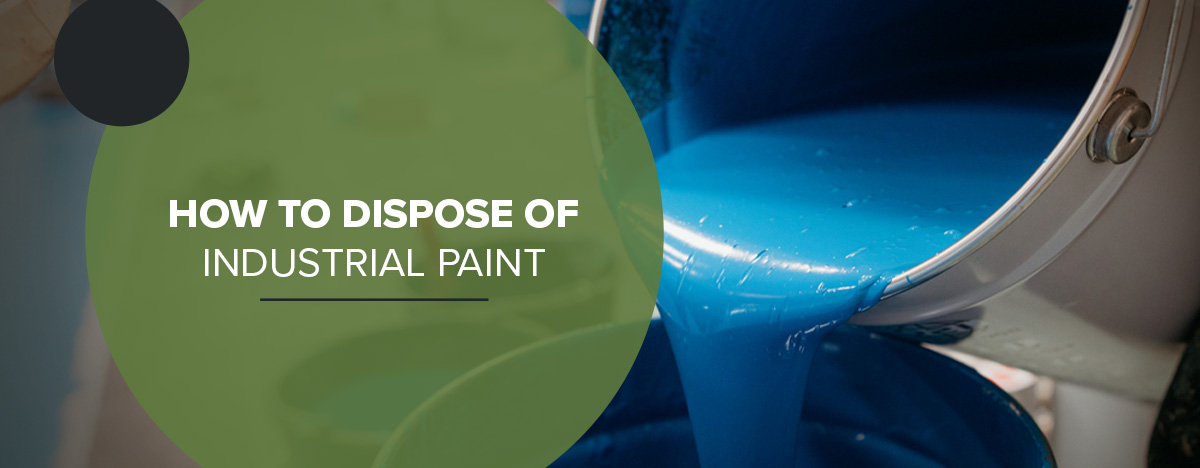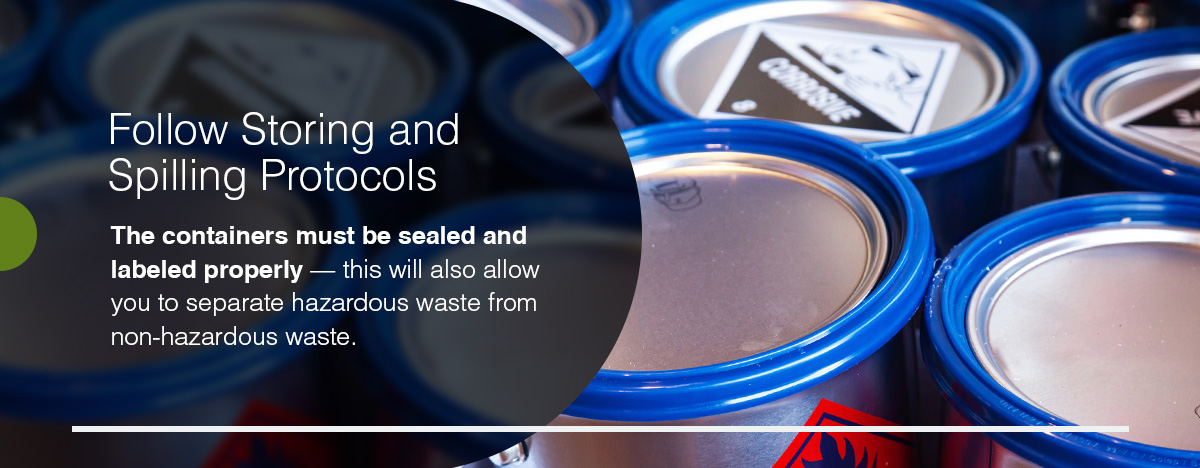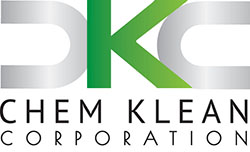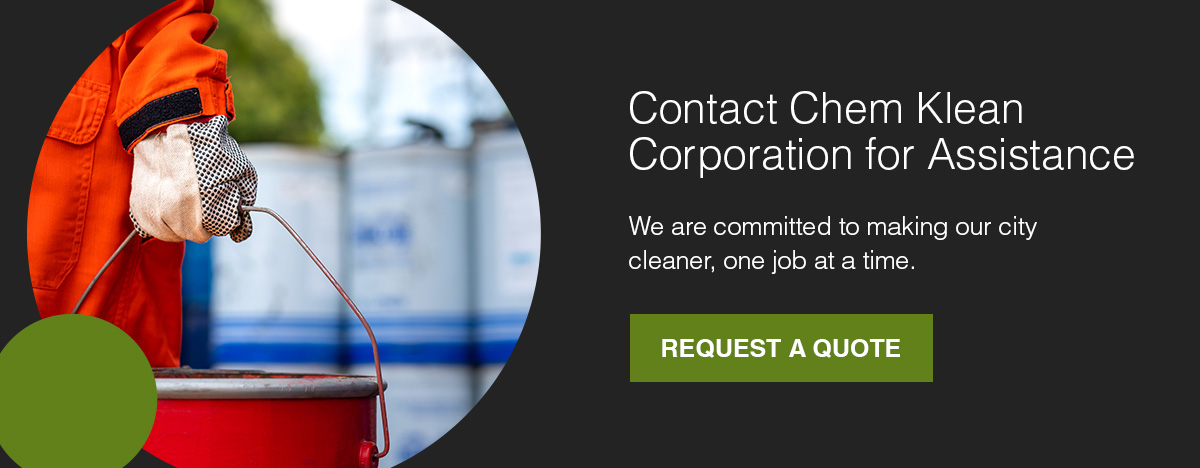
Industrial paint and coatings — often referred to as commercial paint — play a pivotal role in various industries, from manufacturing to automotive to aviation. These sectors must comply with regulatory and operational requirements based on surface protection, functionality and aesthetic prerequisites.
Industrial paint often has hazardous properties, and specific regulations must be followed regarding commercial paint disposal. Users of industrial paint are advised not to get rid of it themselves but instead to rely on a professional waste disposal company for assistance.
Why Is Proper Industrial Paint Disposal Important?
Industrial paint and coatings protect metal, ceramic, fiberglass and asphalt surfaces against chemical reactions, such as corrosion, and general wear and tear. To fulfill these functions properly, industrial paint often contains hazardous components that can be harmful to human health and the planet.
Volatile organic compounds (VOCs), such as methyl alcohol, n-hexane and toluene, are commonly found in industrial paint. Aromatic hydrocarbons, organic halogen compounds, and cobalt or chrome may also be present.
Exposure to these chemicals, whether through inhaling or physical contact, can have adverse health effects, including:
- Neurosystem effects.
- Dermatitis.
- Eye and skin irritation.
Additionally, improper commercial paint disposal can negatively impact the environment, harming natural habitats, ecological systems, and animals, contributing to higher carbon footprints and increased pollution.
How Is Paint Supposed to Be Disposed Of?
Working with experts is always advised to help you safely dispose of both hazardous and non-hazardous paint.
Professional hazardous waste disposal service providers can give you peace of mind by disposing of your paint according to legal and regulatory requirements. These facilities often conduct on-site consultations and can assist you in establishing the correct systems and protocols.
Follow these steps to get rid of industrial paint securely with the help of professional services.
1. Check Industrial Paint Classification
Different types of paints have unique disposal requirements. Begin by finding the paint's classification, which is key to ensuring you adhere to the right protocols and regulations when getting rid of it.
Industrial paints and coatings are often characterized by their resin or chemistry type. Common examples include the following:
- Epoxy
- Polyurethane
- Acrylic
- Alkyd
These classifications can directly impact the best practices for disposal. In addition to unused paint, you must be careful whenever throwing away any industrial paint-related products, such as empty containers, solvents or thinners. Paint thinner disposal generally follows the same protocols as industrial paint.
2. Follow Storing and Spilling Protocols for Industrial Paint

You should have established protocols in place for storage and spill response. These will help your team align with regulatory compliance standards and maintain a secure environment.
The best storage practices involve using DOT-approved containers for all industrial paint. The containers must be sealed and labeled properly — this will also allow you to separate hazardous waste from non-hazardous waste. Ensure you have cool, ventilated storage spaces for your industrial paint, away from power sources.
If you experience a paint spill, it is important to assess the severity of the incident and prioritize the safety of your personnel and the environment. You must also ensure that you report and document such incidents promptly for regulatory compliance purposes.
3. Ensure Compliance With Local Regulations
Several complex regulations must be followed when disposing of hazardous waste. Familiarize yourself with the guidelines provided by the Environmental Protection Agency (EPA) and any local or state laws.
Failure to follow these rules can have serious consequences, including fines, legal action and even imprisonment.
Sustainability remains top of mind and is driven by regulatory bodies and the general public. Environmental, social and governance standards (ESG) for the painting and coatings industry are becoming increasingly prevalent. This includes social responsibility regarding the recycling and reuse of hazardous materials.
Recordkeeping and documentation of protocols are required by law. It is good practice to keep track of the following:
- Type and volume of the waste
- Storage conditions
- Transportation and the final disposal destination, as outlined by the Federal Motor Carrier Safety Administration (FMCSA)
4. Locate a Hazardous Waste Facility Near You
The intricacy of industrial paint waste regulations often makes it mandatory to involve professionals. It is advised to locate a hazardous waste facility near you in Orlando or Miami for professional assistance. They can help you in the following ways:
- Regulatory compliance: A trustworthy hazardous waste facility will have expert, certified waste consultants onboard. They will stay current with all the relevant local, state and federal regulations to ensure you remain legally compliant.
- On-site consultations: These facilities often offer on-site consultations to understand how certain regulations and practices apply to your unique operations. They can also conduct audits and help you develop innovative systems.
- Ongoing support: Partnering with a hazardous waste facility will provide you with ongoing support when you need it. They have the right expertise to safely collect, separate and dispose of your hazardous materials.
Frequently Asked Questions About Industrial Paint Disposal
There are a few frequently asked questions about industrial paint and its proper disposal.
What Is the Difference Between Industrial Paint and Regular Paint?
The difference between industrial and regular paint is that industrial paint's main function is to offer high-quality protection to surfaces. It typically prioritizes function over aesthetics, offering robust resistance to environmental impacts, such as:
- Chemical exposure.
- Corrosion.
- Physical impacts.
Regular paint is primarily used for decorative and aesthetic purposes. Regular options tend to contain fewer hazardous ingredients, but both types should be carefully disposed of to avoid potential dangers.
Is Industrial Paint Harmful?
Yes, industrial paint can be harmful to humans and the environment because this type of paint contains hazardous components such as VOCs that can lead to various conditions in humans. It can also negatively impact the environment if not correctly disposed of.
Can You Dispose of Industrial Paint on Your Own?
No. Your team should never throw away old or unused industrial paint from your facility without the help of a professional hazardous waste disposal services provider.
Always rely on a trusted partner to ensure compliance and the safest removal processes possible.
Contact Chem Klean Corporation for Assistance in Safely Disposing of Your Industrial Paint
Chem Klean Corporation offers fast and reliable industrial paint disposal in Orlando and Miami. As a local, family-owned business with over 20 years of experience in hazardous waste management, we pride ourselves on 24- to 48-hour turnaround times and personalized service according to your needs and requirements.
Whether you are a contractor or business, our friendly and experienced team is here to help you safely and affordably manage your industrial paint waste. We are committed to making our city cleaner, one job at a time. Let's work together toward a cleaner tomorrow.
Contact us for a free quote today!












